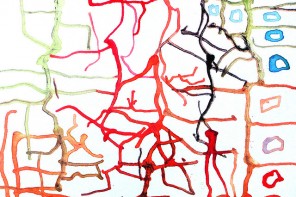I was delighted to see recently that my institution, the Graduate Center of the City University of New York, will be launching a paid-internship program called the Altfest Graduate Internship Program. The program is named after two Graduate Center alumni, Karen C. Altfest and Lewis J. Altfest, whose donations will pay for three summer stipends of $4,000 to enable graduate students to gain experience and develop skills in diverse potential careers. I thought the program was timely, and I was curious to know how long it would be available. Jennifer Furlong, the director of the Office of Career Planning and Development, reassured me that the program was meant to continue, although its future configuration would hinge on how the first cohort of interns fares. “We might ask employers who’ve had a good experience with our students to share stipend expenses with us,” said Furlong.
The Graduate Center offers other paid nonteaching opportunities, mostly in university administration, but I find the Altfest Program exciting because it ultimately fits in with what I see as a slow but steady trend: universities are beginning to acknowledge that employment possibilities are changing and that humanities graduates should be better prepared to apply their advanced knowledge and skills to public life. As a result, universities are devising and creating programs to provide future PhDs with the tools and training necessary to cast a broader net for job options beyond teaching careers.
Although still relatively rare, these internships signify a development in an academic culture that has valued academia over other career paths. Paid-internship programs for humanities graduate students are a response to a long struggle for positive change in graduate education in the humanities. This call for a refashioning of humanities education dates back to at least 1996, when the MLA’s Guide to the Job Search announced the recession of the tenure-track job market and recognized the need to expand career options for PhDs in the humanities. Foundations and scholarly associations, such as the Woodrow Wilson National Fellowship Foundation, the Andrew W. Mellon Foundation, and the American Council for Learned Societies, to name a few, have since then actively supported changes in graduate education to prepare doctoral students for wider career horizons. It appears that more departments and programs are now beginning to do so, at a faster pace, in ways that vary depending on the nature of the institution and the resources at its disposal.
One serious question that confronts internship programs like Altfest is how they will fit into students’ current programs. Teaching and research do not always leave doctoral students with much time for internships, paid or unpaid. The Graduate Center’s Altfest offers one solution, providing students with funding during an otherwise unfunded summer. The University of Miami’s Graduate Opportunities at Work (UGrow) program offers another. This program, launched in 2015, offers PhD students nine-month placements in fields as varied as university administration, nonprofit fund-raising, data analysis, and digital humanities in lieu of their university teaching obligations. The success of the first cohort of interns has allowed the program to expand to include off-campus internships, at the HistoryMiami Museum. Tim Watson, the director of graduate studies at the University of Miami, believes UGrow is making graduate school attractive to a broader variety of potential doctoral students. “Within a few months of launching UGrow, we began to see applications from prospective PhD students mentioning the program as a factor in their decision to apply to the University of Miami,” Watson told me.
Despite the appeal of these programs, the traditional graduate curriculum is still slow to adjust, and PhD-student funding is one of the areas in which adjustment is likely to be the slowest. The Graduate Center’s exploration of third-party funding is one approach to this issue at a time when many universities are experiencing budget cuts. In contrast, the University of Miami funds UGrow completely in-house. In surveying a number of similar programs, I see Altfest and UGrow as illustrating the two main models of internship programs for graduate students currently offered in the United States. It is fair to say that in most cases public research universities seek outside funding, whereas private universities tend to fund such programs from departmental and graduate-division budgets.
The University of Michigan’s Humanities Doctorate in the Twenty-First Century paid summer internship resembles Altfest’s model. Thanks to support from the Andrew W. Mellon Foundation, the university provides $2,000 to $5,000 stipends for students to intern during the summer at partner sites in such fields as museum studies and archival research, digital humanities, university development, and nonprofit administration. This program offers other opportunities, including “Immersives,” brief but intensive experiences in a particular workplace or with a particular project. Another program that follows this model is the Public Humanities Fellowship at the University of Wisconsin, Madison. Also funded by the Mellon Foundation, the Public Humanities Fellowship is, like UGrow, meant to replace a student’s teaching load with a work placement at a community organization, such as a museum, a center for the arts, a public radio or television station, or a public humanities council. In contrast to these Mellon-funded programs at public universities, the Fellowships in Academic Administration program at Columbia University, which provides advanced doctoral students with enhanced career preparation in administrative offices across Columbia’s campuses, is fully funded in-house. Like UGrow, this program is meant to give students the opportunity to apply their knowledge and skills in practical ways and to explore nonteaching career paths; unlike UGrow, however, it is not intended to replace teaching as a source of funding.
But what difference does a paid internship actually make in students’ professional preparation? Based on his experience with UGrow, Watson believes that internships foster skills that can help in a future job search, whether academic or nonacademic. A UGrow student interning at the university library, for example, gained experience in archival management, exhibit curation, and the presentation of scholarly research for the public. Another student, who interned at the university advancement office, learned to see the university as a multifaceted institution, while producing well-written fund-raising materials that benefited the university. In both cases, through their UGrow internships, the students acquired skills transferable to a number of career paths―including tenure-track professorial positions, for which they may now be better qualified. Similarly, Sarah Goldberg, a member of my Connected Academics proseminar cohort who participated in the Fellowships in Academic Administration program at Columbia in 2014, wrote in her department’s blog that “the internship accomplished more than providing me with new pre-professional knowledge and experience; it helped me dismantle some of my own doubts about the value of the humanities and what we do at the university.” Such insight and clarity of purpose can only benefit PhD students as they search for any kind of job.
Despite the clear advantages that paid internships offer graduate students, the systematic integration of such programs into the current graduate curriculum is not likely to happen overnight. Teaching and research are central to university life, and graduate student teaching is crucial to the ecosystem of most universities. I don’t advocate the wholesale replacement of teaching with internships; indeed, teaching is a core skill that any humanities graduate student should possess. Furthermore, I recognize that for some departments substituting other work for graduate students’ teaching responsibilities will pose serious logistical problems. But these logistical issues might be easier to address were it not for other roadblocks. Some faculty members continue to see work outside the classroom as a distraction from the most important aspects of graduate education. Consequently, their students, even when interested in programs such as Altfest and UGrow, might avoid applying for them for fear of alienating their advisers and even endangering their positions in their programs.
The long-term solution to these issues is, of course, culture change within departments. Humanities PhD programs have long presumed that all students will go on to careers as professors and have often ignored those who didn’t. Many PhD programs fail to list on their alumni Web pages the names of students who strayed from the tenure-track path, however significant their achievements. Despite this elision, from a practical perspective programs and departments have been preparing PhD students for a variety of careers for years; the question now is, How will they go about making this preparation more intentional and, one hopes, more effective? These paid-internship programs represent a step in that direction, and I hope that more programs and universities will consider implementing them. In so doing, institutions will recognize the plurality of post-PhD career outcomes, together with the importance of thoughtful preparation for these careers and the position of PhD students as early career professionals who bring with them valuable skills and insight.
Parfait Kouacou is a French PhD student at the Graduate Center, City University of New York. His research explores African literature and international human rights law. He received a master’s degree in law from the University of Bouake, Côte d’Ivoire, and a master’s degree in French literature from Arizona State University (ASU). Parfait previously worked as a journalist and a human rights officer for the United Nations in Côte d’Ivoire. He also taught French at ASU, the Graduate Center, and the City College of New York. He is currently a graduate teaching fellow at Brooklyn College and an adjunct lecturer at Baruch College. In the summer of 2015, he completed an internship with the Office of the United Nations High Commissioner for Human Rights in New York, during which he worked on a database for public statements of the office’s senior officials and designed, among others, a project pertaining to the promotion of human rights in New York colleges.
is a French PhD student at the Graduate Center, City University of New York. His research explores African literature and international human rights law. He received a master’s degree in law from the University of Bouake, Côte d’Ivoire, and a master’s degree in French literature from Arizona State University (ASU). Parfait previously worked as a journalist and a human rights officer for the United Nations in Côte d’Ivoire. He also taught French at ASU, the Graduate Center, and the City College of New York. He is currently a graduate teaching fellow at Brooklyn College and an adjunct lecturer at Baruch College. In the summer of 2015, he completed an internship with the Office of the United Nations High Commissioner for Human Rights in New York, during which he worked on a database for public statements of the office’s senior officials and designed, among others, a project pertaining to the promotion of human rights in New York colleges.






